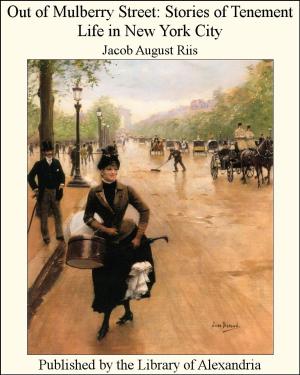| Author: | Wenona Gilman | ISBN: | 9781465614438 |
| Publisher: | Library of Alexandria | Publication: | March 8, 2015 |
| Imprint: | Language: | English |
| Author: | Wenona Gilman |
| ISBN: | 9781465614438 |
| Publisher: | Library of Alexandria |
| Publication: | March 8, 2015 |
| Imprint: | |
| Language: | English |
Mrs. de Barryos sat beside a window overlooking a dainty rose-garden, the golden sunshine streaming over her, the balmly air lifting the soft curls of dark hair that was artistically touched with gray. Her hands were folded idly over a letter that lay in her lap—small hands that looked as if they had never known the meaning of toil, they were pale and thin, like the face of the woman to whom they belonged, for Mrs. de Barryos was an invalid. She had been pretty before her face acquired its present angles through suffering; never beautiful, but pretty in a dainty, meaningless sort of way; inoffensively pretty some people might have called her, for there was no strength in it, nor character. Her eyes were innocent, wide-open brown ones that were like those of an obedient child. Her chin was decidedly weak, and about the mouth had grown with her age a sort of querulous tremble, as if she felt that the world had used her unfairly, and wanted all mankind to sympathize with and pet her because of it. She was never known to miss an opportunity to tell people of all the wretchedness that had been so bravely and uncomplainingly borne. She had fancied for the past five years that death was imminent, that its shadows lay across her threshold, and yet she was apparently as far from it as she had been at the beginning of the five years. There was another thing about Mrs. de Barryos' life of which she was apparently as proud as of her illness and patience, and that was the fact that she was a lineal descendant of the renowned Pocahontas, a fact at which some people laughed; but it was an undisputed fact, all the same, for the historical Indian maiden had given birth to one of the grandfathers upon the maternal side, and the curling hair and weakness of character had been inherited from the branch of the family that should have imparted its strength. And it was of that same ancestress that Mrs. de Barryos was thinking as she sat there beside the window, her eyes mechanically following the flitting movements of a graceful form in the garden that was bending above the roses.
Mrs. de Barryos sat beside a window overlooking a dainty rose-garden, the golden sunshine streaming over her, the balmly air lifting the soft curls of dark hair that was artistically touched with gray. Her hands were folded idly over a letter that lay in her lap—small hands that looked as if they had never known the meaning of toil, they were pale and thin, like the face of the woman to whom they belonged, for Mrs. de Barryos was an invalid. She had been pretty before her face acquired its present angles through suffering; never beautiful, but pretty in a dainty, meaningless sort of way; inoffensively pretty some people might have called her, for there was no strength in it, nor character. Her eyes were innocent, wide-open brown ones that were like those of an obedient child. Her chin was decidedly weak, and about the mouth had grown with her age a sort of querulous tremble, as if she felt that the world had used her unfairly, and wanted all mankind to sympathize with and pet her because of it. She was never known to miss an opportunity to tell people of all the wretchedness that had been so bravely and uncomplainingly borne. She had fancied for the past five years that death was imminent, that its shadows lay across her threshold, and yet she was apparently as far from it as she had been at the beginning of the five years. There was another thing about Mrs. de Barryos' life of which she was apparently as proud as of her illness and patience, and that was the fact that she was a lineal descendant of the renowned Pocahontas, a fact at which some people laughed; but it was an undisputed fact, all the same, for the historical Indian maiden had given birth to one of the grandfathers upon the maternal side, and the curling hair and weakness of character had been inherited from the branch of the family that should have imparted its strength. And it was of that same ancestress that Mrs. de Barryos was thinking as she sat there beside the window, her eyes mechanically following the flitting movements of a graceful form in the garden that was bending above the roses.















